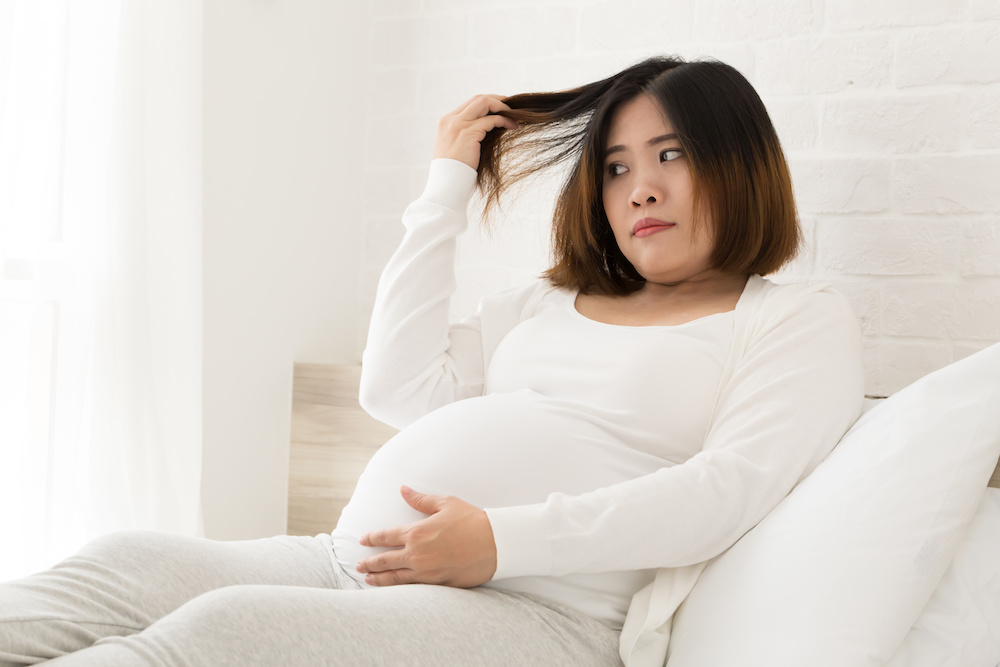Getting enough sleep, managing stress and following a healthy diet will lead to major improvements in the condition of your hair.

Many women perceive hair loss as an embarrassing problem they don’t like to discuss, but in reality it is a lot more common than one may think.
Whether due to hormonal fluctuations, medication, stress or a deficiency, it affects women of all ages, all around the world.
Rasheed Patel, the founder of high-end nutritional supplement company Fusion Laboratories, answers some common questions surrounding female hair loss.
Is my hair loss connected to dandruff?
Dandruff does not directly cause hair loss, but some interesting connections have been made between the two conditions.
Many dermatologists believe dandruff is caused by a yeast fungus, which thrives in very dry or very oily conditions.
In some cases, dandruff can cause itchiness and when the scalp is scratched often, the friction can lead to hair falling out. The dandruff itself is a problem related to the scalp and is not a direct cause of hair loss.
Dandruff can be successfully managed with an anti-dandruff shampoo and certain natural oils, such as tea tree oil.

Picture: iStock
Do birth control pills affect hair growth and hair loss?
Oral contraceptives can cause hair loss in women sensitive to the hormones the pill contains.
Hair grows in cycles. The active phase is called anagen. This is the phase during which the hair grows from its follicle.
The transitional phase, known as catagen, is when growth stops. It could last for 10 to 20 days.
The last phase is known as telogen, which is the resting phase. Between 25 and 100 hairs are shed daily in this phase, which can last for up to 100 days.
Sometimes, birth control pills can cause the hair to move from the growing phase to the resting phase at a faster pace, which can result in more hair falling out.
The good news is that this is usually a temporary problem. After a few months, the body will adjust to the pill and normal hair growth should resume.

Picture: iStock
I’ve lost hair since giving birth. What can I do to get my hair back on track?
During pregnancy, a woman’s oestrogen levels increase, which prolongs the hair’s growth stage. This means fewer hairs fall out every day. The result is thicker, more luscious hair.
After birth, however, oestrogen levels decrease dramatically and more hair follicles fall into the resting stage. Women generally experience an increase in daily hair loss, but after around six to 12 months, the hair should be back to its pre-pregnancy condition.
In the interim, we recommend investing in a high-quality supplement, like Trichotin Hair Regenesis, to minimise hair fall and increase hair growth. This is not to be used during pregnancy.

Picture: iStock
How does menopause affect hair growth?
Menopause affects the body in different ways and the thinning of hair is common. The older we get, the more hair we lose, but menopause accelerates this.
The main reason is a decrease in the hormone oestrogen. Reduced oestrogen reduces the hair’s growth cycle, which means the hair sheds before it reaches the length it used to.
Menopause also causes an increase in the male hormone androgen, which can trigger thinning hair. These hormones can cause the hair to grow weaker and thinner.
In addition, menopausal hair loss can also be caused by certain medications, thyroid problems and nutritional deficiencies.

Picture: iStock
I haven’t been looking after my body very well. Would a healthier lifestyle improve the condition of my hair?
Definitely! Studies have suggested that smoking-induced damage to our DNA can cause damage to hair follicles, resulting in hair loss.
An unhealthy diet also plays a role. Essential nutrients zinc and iron are vital for healthy hair growth. Lean proteins and healthy fats also ensure shiny and healthy hair.
Ultimately, a healthy body will lead to healthier hair, so getting enough sleep, managing stress and following a healthy diet will lead to major improvements in the condition of your hair.

Picture: iStock
I want to improve hair growth, but I’m terrified that I’ll sprout new hair on other parts of my body. Is this possible?
This is unlikely. The hair on our bodies thins over time, just like the hair on our scalps, but because they have a different protein makeup and respond differently to environmental and steroid factors, they do not behave in the same way.
Our scalp hair growth is largely controlled by hormones, whereas hair on the legs, arms etc. is affected by hormones, but not controlled by them in the same way.
For more news your way, download The Citizen’s app for iOS and Android.






